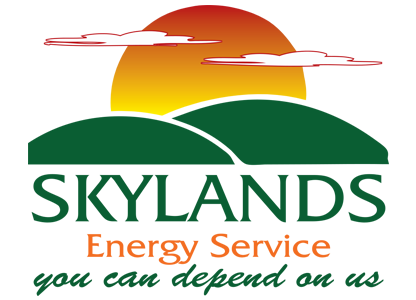
Unexpected blackouts can bring daily routines to a halt, leaving your household vulnerable. Your home can continue running safely and smoothly with the proper standby generator. Choosing the right system involves understanding your home’s power demands and planning accordingly.
Skylands Energy Service, a trusted generator provider in Central New Jersey, offers professional support to help homeowners select and install dependable standby generators tailored to their energy needs. This article outlines the crucial steps involved in how to size a standby generator, giving you the confidence to make the right choice and keep your home protected during unexpected outages.
Stay Prepared for Outages: Ensure your home stays operational with a standby generator built to handle your energy needs. Contact Skylands Energy Service today!
Determining the Right Standby Generator Size: A Step-by-Step Homeowner’s Guide
Table of Contents
- 1 Determining the Right Standby Generator Size: A Step-by-Step Homeowner’s Guide
- 2 The Importance of Correct Power Generator Sizing
- 3 Key Factors in Choosing the Right On-Demand Generator Size
- 4 Selecting the Correct Fuel Source for Your Backup Generator
- 5 Standby Generator Installation: Key Factors
- 6 How to Size a Standby Generator: Frequently Asked Questions
- 6.1 What Are the Risks of Using a Generator That’s Too Small for My Home?
- 6.2 Is a Portable Generator a Suitable Replacement for a Standby Generator?
- 6.3 What Role Does My Electrical Panel Play in Sizing a Power Generator?
- 6.4 Is It Important to Factor in Future Energy Use When Sizing a Generator?
- 6.5 How Long Can a Standby Generator Last?
- 7 Conclusion
- 8 Call Skylands Energy Service for Trusted Standby Generator Solutions

Knowing how to choose the appropriate generator helps guarantee your home stays powered during critical moments. Below, we’ll review the essential factors when sizing a standby generator.
Keep the Lights On When It Counts: Choose a dependable generator that delivers power when you need it most—contact Skylands Energy Service now!
The Importance of Correct Power Generator Sizing
Choosing the right size for your standby generator is crucial for delivering safe, reliable power during an outage. A unit that’s too small may struggle to meet your home’s electrical demands, resulting in overloaded circuits, damage to delicate electronics, and repeated shutdowns.
In contrast, using a generator that’s too large leads to excessive fuel use, accelerated wear, and added maintenance expenses. Sizing your generator to align with your home’s actual power demands helps ensure efficient performance, minimize waste, and deliver dependable power during critical times.
Estimating the Power Requirements of Your Home

Accurate generator sizing starts with identifying which appliances and systems must stay operational during an outage. Focus on critical items like your HVAC system, refrigerator, lights, sump pump, and necessary medical devices. These components are key to maintaining comfort, safety, and daily routines when power is lost for extended periods.
After listing your essential equipment, determine the total wattage needed to keep it running. This includes running wattage, the power required during regular use, and starting wattage, which accounts for the initial surge when devices power on. For instance, a refrigerator may use 500–700 running watts but up to 1,000 watts to start. A typical central air conditioner might require 2,500 running watts and as much as 5,000 watts to start.
Unsure Which Generator Fits Your Home?: Let Skylands Energy Service evaluate your power needs and guide you to the ideal standby generator. Call us today!
Understanding Startup vs. Running Wattage for Standby Generators
Recognizing the difference between peak power needs (startup wattage) and continuous power use (running wattage) is essential when selecting a generator. It must handle the surge of electricity required when appliances start while supporting their regular power consumption. Properly balancing demands helps the generator run reliably and prevents unnecessary stress on the system.
Whole-House Generator Options and Power Ratings
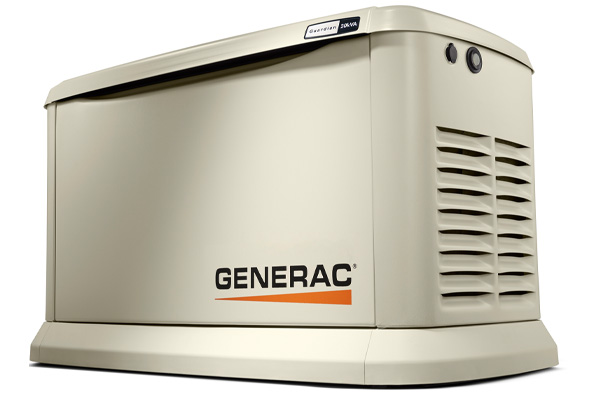
Selecting the right generator involves understanding how much backup power your household will need.
- Whole-House Generators: These systems supply power to your entire home, covering everything from heating and cooling systems to lights and appliances. They’re best suited for larger properties or homes needing uninterrupted power. Most whole-house generators offer output capacities between 20 kW and 50 kW or higher, depending on the specific energy demands.
- Partial Home Generators: These units supply power to select circuits or vital systems like lighting, sump pumps, and refrigerators. They’re a budget-friendly solution for homeowners who need limited backup power. Depending on which circuits are prioritized, partial home generators typically offer capacities between 8 kW and 20 kW.
Power Through Emergencies: Choose a generator that keeps your household safe and running smoothly—call Skylands Energy Service now!
Key Factors in Choosing the Right On-Demand Generator Size
Choosing the correct generator involves evaluating several important elements that influence its performance and effectiveness in meeting your home’s long-term power needs.
Square Footage and Property Configuration
Your home’s overall size and layout directly affect the needed backup power. Larger properties often call for higher-capacity generators, particularly if they include multiple stories or separate areas like garages or workshops. The system must deliver steady power to all critical circuits throughout the entire space.
Weather Patterns and Seasonal Energy Use
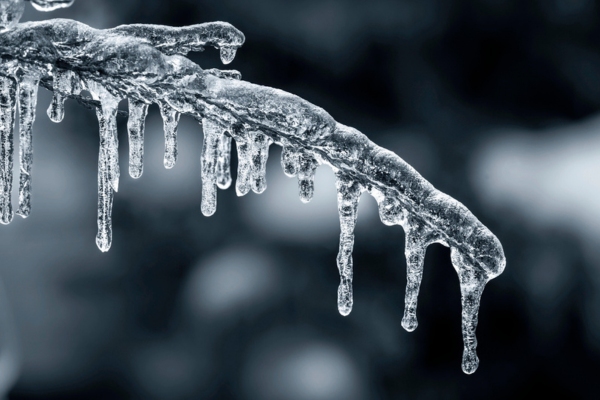
Regional climate and seasonal conditions significantly impact household power demands. In colder areas, systems like central heating, electric heaters, and radiant floors can draw significant electricity. In warmer climates, air conditioning units and dehumidifiers become essential and increase energy usage. A well-sized generator must accommodate these seasonal shifts.
Strengthen Your Home’s Backup Power Plan: From accurate sizing to professional installation and support, Skylands Energy Service has you covered. Call today!
Anticipating Future Power Requirements
When selecting a generator, it’s important to consider how your energy usage may grow. Installing EV chargers, advanced appliances, or smart home technology can increase demand significantly over time. Opting for a generator with added capacity helps accommodate these upgrades and prevents the system from falling short as your needs evolve.
Selecting the Correct Fuel Source for Your Backup Generator
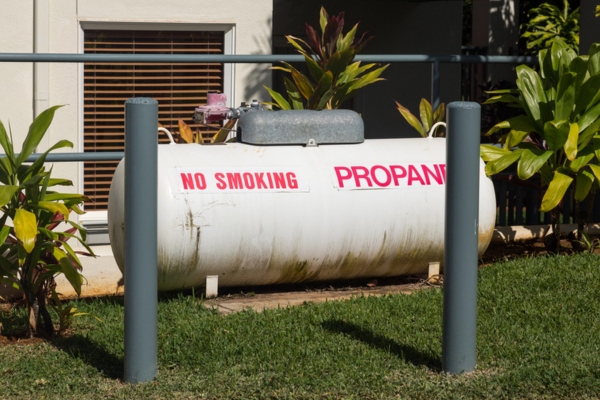
The type of fuel, whether natural gas, propane, or diesel, affects generator performance and sizing. Natural gas and propane are usually preferred for homes because they burn cleaner and integrate well with residential systems, though access may depend on local supply.
Diesel models generally deliver better efficiency and longer lifespan, but need more space for fuel storage and careful handling. Evaluating your fuel choices helps ensure the generator aligns with your energy needs and logistical setup.
Take Control of Power Loss: Depend on Skylands Energy Service for expert generator solutions that keep your home running without interruption. Contact us today!
Helpful Tools for Proper Whole-Home Generator Sizing
Determining the correct size for a standby generator involves detailed analysis, and various tools can support homeowners in the process. Online sizing calculators offer fast estimates by accounting for typical household systems and appliances, but they should not replace a professional assessment.
Depending only on these tools can lead to miscalculations, such as missing vital systems or underestimating total power demand, which may cause the generator to fall short during a power outage.
Professional energy assessments from Skylands Energy Service deliver accurate sizing based on your home’s specific needs. Our expert evaluations consider detailed power usage, anticipated future demands, and proper system integration, ensuring you receive dependable guidance when selecting the ideal generator capacity.
Standby Generator Installation: Key Factors
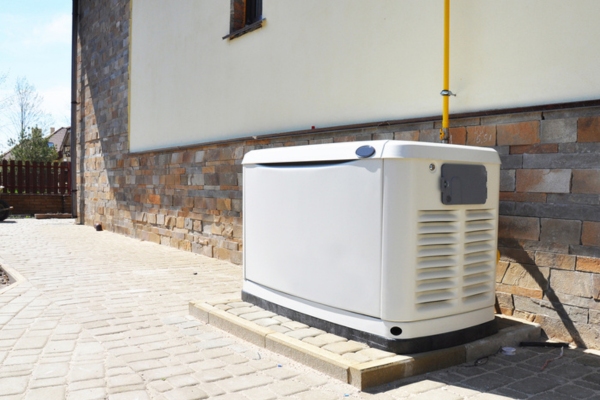
Installing a standby generator correctly requires attention to several essential details that impact performance and safety.
Location and Clearance Guidelines
A generator’s physical size affects where it can be placed. It needs sufficient space and clearance from nearby structures like windows, vents, and walls to maintain safe operation and ventilation. It should be installed on a flat, sturdy base, usually a concrete pad, in a spot that reduces noise levels and directs exhaust safely away from the home.
Meeting Local Generator Installation Standards
Following local codes and regulations is essential when installing a standby generator. Permits are often necessary, and units must comply with established safety and zoning rules. Staying in line with these requirements helps prevent legal complications and supports safe, dependable performance. Working with experts who understand local regulations makes the process smoother and ensures full compliance.
Ready for Uninterrupted Power During Any Storm? Trust Skylands Energy Service for personalized generator solutions and reliable support—reach out now!
Why Trust Skylands Energy Service for Generator Sizing and Installation?
Skylands Energy Service brings expert knowledge and a commitment to personalized care for whole-house generator sizing and installation. With extensive experience, we conduct in-depth energy evaluations to recommend the right generator tailored to your home’s specific power requirements.
We offer complete services that cover expert installation, routine maintenance plans, and dependable support to keep your generator operating at its best. With Skylands Energy Service, you can feel confident that your home will stay powered and protected through any outage, regardless of the situation.
How to Size a Standby Generator: Frequently Asked Questions

What Are the Risks of Using a Generator That’s Too Small for My Home?
An undersized generator won’t be able to handle your home’s full electrical load, forcing it to run beyond capacity and possibly shut down or malfunction. This may result in repeated outages, harm to appliances, and reduced equipment life. Choosing the correct size ensures steady, reliable power without overloading the system.
Is a Portable Generator a Suitable Replacement for a Standby Generator?
Portable generators offer a more affordable way to run select essential devices during an outage, but they don’t match the capabilities of a standby system. Standby generators operate automatically, support larger electrical loads, and can power your entire home. They’re also permanently installed and linked to a continuous fuel supply, removing the need for manual setup or constant refueling.
What Role Does My Electrical Panel Play in Sizing a Power Generator?
Your electrical panel is key to determining how much of your home can be powered during an outage, making it an important factor in generator sizing. A professional evaluation ensures the generator’s capacity matches the panel’s load demands and your household’s energy usage, helping prevent overloads and ensuring smooth, reliable operation.
Always Be Ready for Blackouts: Trust Skylands Energy Service for expert standby generator installation and dependable home power—reach out now!
Is It Important to Factor in Future Energy Use When Sizing a Generator?
Yes, planning for future energy use is essential to prevent your generator from becoming undersized over time. If you plan to install an EV charger, upgrade to high-demand appliances, or expand your living space, selecting a generator with extra capacity allows it to support future growth and helps you avoid the expense of a replacement down the road.
How Long Can a Standby Generator Last?
A well-maintained, high-quality standby generator can operate reliably for 15–20 years or longer. This lifespan depends on consistent care, including regular oil changes, system inspections, and timely attention to minor problems. Working with a trusted provider like Skylands Energy Service helps ensure your generator stays efficient and dependable whenever a power outage occurs.
Conclusion
Choosing the correct size for a standby generator is vital for dependable backup power during outages. Each detail plays a key role, from pinpointing essential circuits and estimating wattage needs to factor in your home’s layout, regional climate, and potential energy growth. Proper sizing avoids energy waste, safeguards appliances, and guarantees smooth, uninterrupted performance.
Don’t wait until the next outage catches your home unprepared. Contact Skylands Energy Service today for expert energy evaluations, tailored generator recommendations, and professional installation you can trust. Let us guide you in selecting and installing the ideal standby generator to keep your home safe and powered at all times.
Expert Generator Solutions You Can Count On: From sizing to service, Skylands Energy Service delivers dependable results every step of the way. Call now!
Call Skylands Energy Service for Trusted Standby Generator Solutions
Skylands Energy Service proudly delivers expert whole-house generator services across Central New Jersey. Our certified technicians are highly trained to provide top-quality installation, repair, and ongoing care for standby generators.
Whether you need a new generator installed, an existing one repaired, or a complete performance check, our skilled team offers tailored solutions to your home’s specific power needs. We take pride in delivering prompt, affordable service designed with your comfort and reliability in mind.
With Skylands Energy Service, you can expect responsive support, transparent pricing, and experienced professionals who put your satisfaction first. We stand behind our work with a dependable service guarantee. Contact us today to schedule your appointment and receive an in-home consultation. Call now!
With Skylands Energy Service, you’re in the hands of industry professionals dedicated to answering your questions and providing the peace of mind you deserve.
Contact us now at (908) 707-1776 to find out more! Click here to view our service area.

Related Articles:

